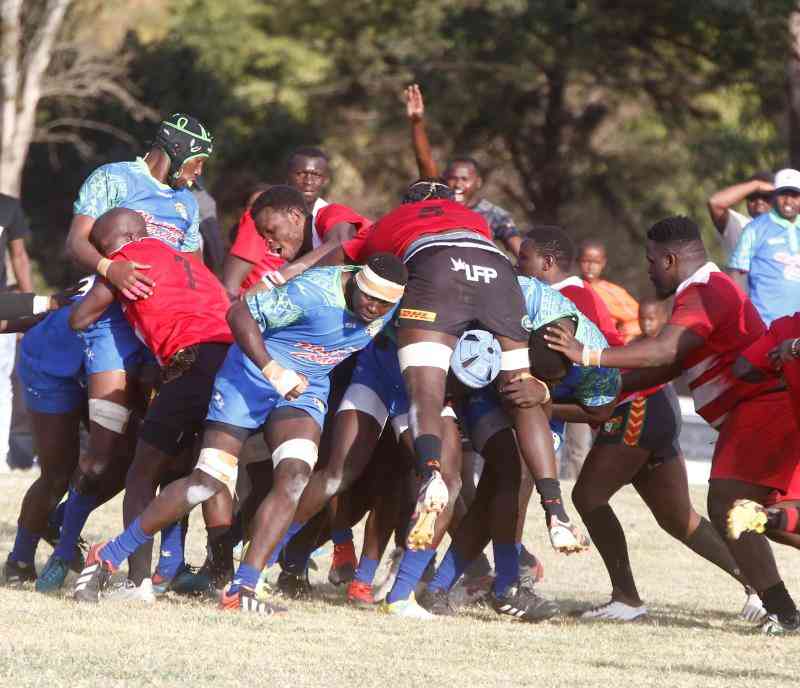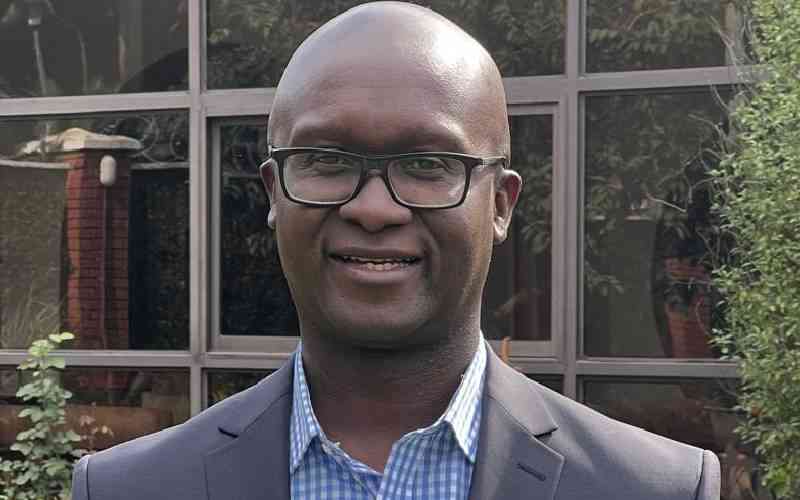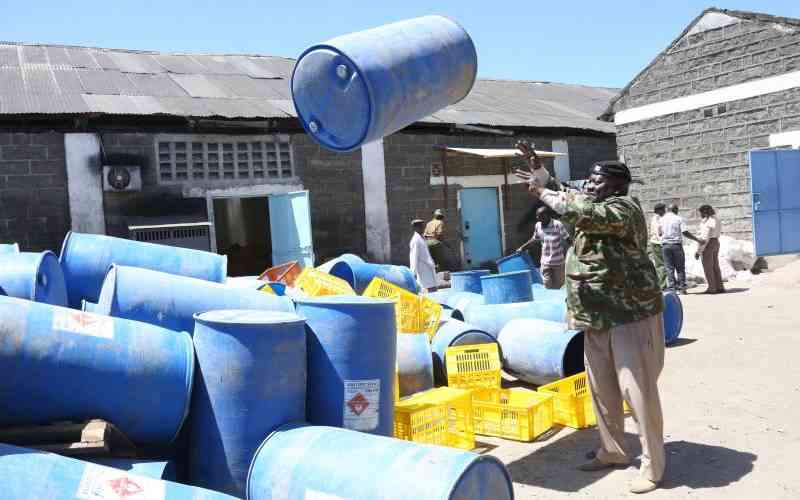Kenya’s political elite, retired military generals and moneyed former civil servants have had a soft spot for spending their sunset years in Nakuru county.
Indeed, all four of Kenya’s presidents have huge chunks of land in the county with the late President Daniel arap Moi having preferred retiring there instead of his native Baringo.
Surveyed closely, there are several factors that have Nakuru winning hands down: it is cosmopolitan mix, availability of land, proximity to major towns like Nairobi and moderate weather that is ideal for retirees.
For the political elite in business, Nakuru is a magnet for domestic tourists and arable land makes it ideal for large scale agriculture preferred by retirees.
That Nakuru was home to President Moi made many nabobs in government to move there and be close to centre of power but again, there is also the Nakuru State House which founding President Mzee Jomo Kenyatta preferred to the Nairobi State House.
In fact, the love of Nakuru as one’s sunset county began at Kenya’s independence in 1963 when Jomo Kenyatta and others in Kenya’s first Cabinet developed special interest in Nakuru and went ahead to acquire huge tracts of land from departing colonialists.
Nakuru was then famed as Kenya’s cleanest town.
This set the pace, which was later replicated during the ensuing regimes of Presidents Moi, Kibaki and Uhuru Kenyatta. Key personalities allied to the four Presidents including top military generals followed suit alongside senior civil servants.
Consider: The late Mbiyu Koinange, Jomo Kenyatta’s Minister of State and brother in-law and business magnate, the late Njenga Karume, who rose to become Defence Minister in the Kibaki administration not only owned huge tracts of land but the latter also ran Lake Elementaita Lodge, one among his ventures in hospitality sector.
Others were provincial administrators, the late Isaiah Mathenge and Kenya’s last Chief Secretary Simeon Nyachae, who passed on this week, and former head of civil service and CBK governor Duncan Ndegwa.
Senior police officers and parastatal heads were also not left behind as were Jomo Kenyatta’s blood relations including his daughter, the late Margret Wambui Kenyatta.
Justice Samuel Bosire, a former Court of Appeal judge retired to his farm in Kuresoi constituency and this year, retired Chief Justice David Maraga indicated he would be enjoying his retirement at his home in Nakuru’s Kiamunyi estate west of Nakuru town-where Cotu Secretary General Francis Atwoli also plans to retire.
Maraga’s affinity was cemented as he first worked at the Nakuru High Court after being appointed judge besides practicing law in Nakuru County for over 20 years.
Atwoli recently shared photos of himself at his farm in Kiamunyi with a caption: “Spending the evening in my small farm in Nakuru looking after my cows and the hays being prepared for the dry season, as I prepare to retire.”
Atwoli explained in a recent interview: “If you have been to this town and actually spent some days here, you will agree with me that it is one of the best places you can be. Most people who visit this town, which is Kenya’s fourth largest city, leave with a broad smile.”
Stay informed. Subscribe to our newsletter
“Other factors such as housing, transportation, education and electricity are very affordable,” explains Gitile Naituli, a professor of management and leadership at Multimedia University.
“If you want to have a good life; a life that mimics that in the big cities, then Nakuru should be one of the towns at the top of your list.”
Among Moi allies owning land in Nakuru included former Veep the late Prof George Saitoti, Ministers Kipng’eno Arap Ng’eny, the late Kipkalya Kones, and former head of civil service Dr Sally Kosgei, former director of CID Noah Arap Too and Moi’s former personal secretary, John Lokorio.
There is also former head of Presidential Press Service Lee Njiru, who served the late President Moi for 44 years. He also settled in Nakuru where he runs a hotel besides his farm in Ngata a few kilometres from Moi’s Kabarak farm.
Statistics show that food or eating out in Nakuru is 43 per cent cheaper than in Nairobi.
Njiru says that Nakuru’s rich agricultural land ensures that one can hardly go hungry since “with only Sh500, you have a gallon of charcoal, a humongous Gloria cabbage, a kasuku of Shangi potatoes from Molo and so much more. In fact, you will even save for tomorrow.”
Andrew Nyabuto, a current affairs commentator, also adds that availability of land especially on the outskirts of Nakuru makes the county attractive to retirees.
“There are huge chunks of land available. The sub-division of former Agricultural Development Cooperation (ADC) farms and other state corporations land made it readily available for senior government officials and politicians most of who have settled in the county,” says Nyabuto.
Some of the top –retired civil servants, who spoke to The Nairobian but did not wish to be named, said the weather in Nakuru attracted them.
“If one cannot handle too much cold or too much heat, then Nakuru is where you should be. The climate is always friendly even when the rest of the country feels like the top of Mt Kenya. It never gets to those extremes that make life so difficult,” said retired military man who has settled at Ngata.
Besides, availability of land, plenty of food, low cost of living and good weather, Nakuru has countless places for fun with friends and family says Moses Essekon, a resident and a youth leader in the county mentioning the Menengai Crater, Hells Gate, Lake Nakuru National Park, The Lord Egerton Castle and the Hyrax hill.
Compared to Nairobi, Nakuru is less in haste with minimal crime rates, says Anne Mwathi, a retired teacher.
Besides political elites, other ordinary Kenyans also found themselves settling in Nakuru courtesy of formidable land buying companies spearheaded by politicians like the late Kihika Kimani with his Ngwataniro Mutukanio Land buying firm and Njenga Karume’s Gema Association.
Wealthy shareholders would acquire land before buying off lesser endowed shareholders and thus expanding their shares as Karume informs us in his 2009 memoirs, Beyond Expectations: From Charcoal to Gold.
Gema, writes Karume, bought land once belonging to Lord Cole and subdivided to members. But being chair of Gema, Karume not only got the lion’s share but also Lord Cole’s house, which is now the main office of Lake Elementaita Lodge.
Jomo Kenyatta’s presidential women dancers also moved to Nakuru courtesy of Nyakinyua land buying company and repeated what the men were doing, buying off poor neighbours and expanding land holdings. These migrants as the names of the companies suggest, were mostly from Mt Kenya region.
That government bodies owned huge tracks of land there also saw many politicians, political go-betweens and military generals being rewarded with government land giving Nakuru a veneer of security whose sheen was added by the presence of Lanet and Gilgil barracks.
With such huge parcels of land and running businesses, these operatives had reasons to retire in Nakuru- the hotbed of politics with many outspoken ones being natives of the county: the late Mark Mwithaga, Kariuki Chotara, Kihika Kimani, John Maina Kamangara, Mirugi Kariuki, Wilson Leitich, Geoffrey Asanyo, David Manyara, James Mungai, Njenga Mungai and Koigi wa Wamwere.
For a politician settling in Nakuru, there is no shortage of company. Any wonder that all presidential campaigns start in Nakuru’s Afraha Stadium? The now bitter political marriage between President Uhuru Kenyatta and his deputy William Ruto was solemnised in Nakuru as well.
It is these interests by the ruling elite, which elevated Nakuru into a special position - in Kenya’s politics and economy - and where key political decisions that affected the entire country were and are still being made: the Mois’ Kabarak farm neighbours the Kenyattas’ expansive Gicheha farm in Rongai constituency.
Nyabuto concludes that “the history of the country is closely intertwined with that of Nakuru county because Kenya’s presidents made it their home besides third President Mwai Kabaki who has a farm in Bahati constituency but never settled there.
 The Standard Group Plc is a
multi-media organization with investments in media platforms spanning newspaper
print operations, television, radio broadcasting, digital and online services. The
Standard Group is recognized as a leading multi-media house in Kenya with a key
influence in matters of national and international interest.
The Standard Group Plc is a
multi-media organization with investments in media platforms spanning newspaper
print operations, television, radio broadcasting, digital and online services. The
Standard Group is recognized as a leading multi-media house in Kenya with a key
influence in matters of national and international interest.
 The Standard Group Plc is a
multi-media organization with investments in media platforms spanning newspaper
print operations, television, radio broadcasting, digital and online services. The
Standard Group is recognized as a leading multi-media house in Kenya with a key
influence in matters of national and international interest.
The Standard Group Plc is a
multi-media organization with investments in media platforms spanning newspaper
print operations, television, radio broadcasting, digital and online services. The
Standard Group is recognized as a leading multi-media house in Kenya with a key
influence in matters of national and international interest.








